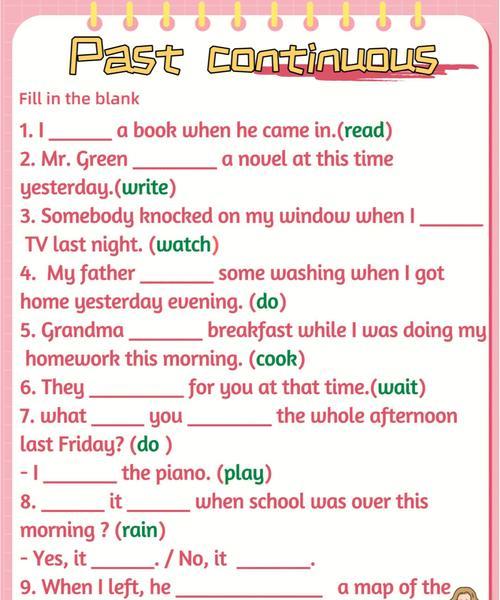过去进行时是英语语法中的一种时态,用于表达过去某个时间正在进行的动作或状态。其结构由"was/were + V-ing"组成,其中"was"用于第一人称单数和第三人称单数,"were"用于第二人称单数以及所有人称复数。例如,“He was singing when I arrived.”(我到达时他正在唱歌。)掌握过去进行时的结构和用法对于学习英语语法和口语表达都有很大的帮助。

过去进行时的结构
过去进行时的结构由"was/were + V-ing"组成,其中"was"用于第一人称单数和第三人称单数,"were"用于第二人称单数以及所有人称复数。
肯定句结构:
主语 + was/were + V-ing
例如:
- He was singing when I arrived. (我到达时他正在唱歌。)
- They were playing basketball at the park. (他们在公园里打篮球。)
否定句结构:
主语 + was/were not + V-ing
例如:
- She was not studying last night. (她昨晚没有在学习。)
- We were not watching TV at that time. (我们那时并没有在看电视。)
疑问句结构:
Was/Were + 主语 + V-ing?
例如:
- Were you sleeping when I called? (我打电话时,你在睡觉吗?)
- Was she cooking dinner when you arrived? (你到达时,她在做饭吗?)
过去进行时的例句
- I was studying when my phone rang. (我在学习时手机响了。)
- They were walking in the park when it started to rain. (下雨时他们正在公园散步。)
- She was listening to music while doing her homework. (她在做作业时听音乐。)
- He was playing video games all afternoon yesterday. (昨天下午他一直在玩游戏。)
